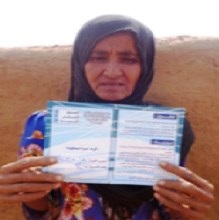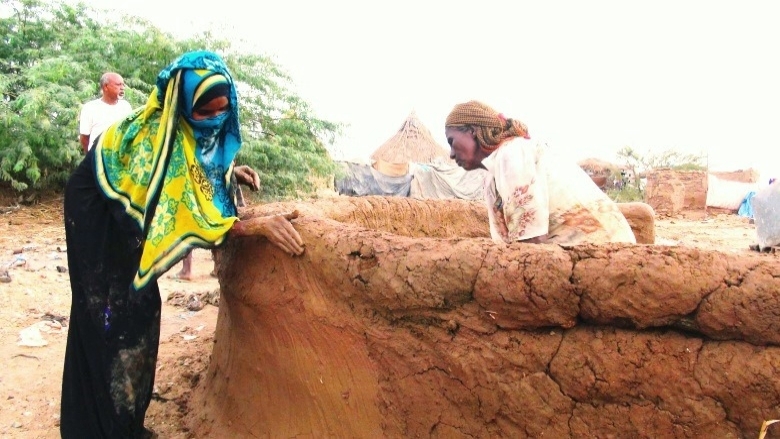Two years of conflict have plunged Yemen into a full-blown crisis. Along with the tragic loss of life and displacement, millions of Yemenis are suffering from economic hardships and lack of basic services. Despite the ongoing crisis, the World Bank Group has continued funding two local institutions it has long worked with that play a critical role in helping the most vulnerable members of Yemeni society.
The Bank has committed to making sure these vital institutions, the Social Fund for Development (SFD) and Public Works Project (PWP), are able to function now during the crisis, staying intact to support the resilience of the local communities and social infrastructure critical to Yemen’s recovery when the fighting stops.
The Bank launched the Emergency Crisis Response Project (ECRP) in August 2016, with US$50 million in grants from IDA, the Bank’s fund for the world’s poorest countries. The project is now being expanded with another US$250 million from IDA. The funding will allow the SFD and PWP to retain their core staff and hire others so that they can more than double the number of districts they are working in across Yemen. Along with the expanded staff and reach, the new funding will allow the programs to benefit around two million Yemenis.
The overall ECRP project is managed by the United Nations Development Programme (UNDP), a close Bank partner that has a presence on the ground. While the SFD and PWP, who will be implementing the project, are headquartered in Sana’a, they have local offices all over Yemen.
In these districts, the SFD pays “cash-for-work” for manual labor carried out on projects chosen by the communities themselves that they support; the PWP hires contractors for the projects involving repairs to roads, cisterns or buildings. Most of the work is done by people not machines so that as many as possible can earn money.
This resonates with Yemenis who worked as casual laborers before the war worsened in March 2015. “I was working as a day laborer in this little city,” said Ahmed Saleh, a father of six living in Taiz, “But the war destroyed everything, including work.” Saleh described the situation for Yemenis like himself as “very grim.” He said working with the project paid him enough “to buy basic food necessities for my family.”
Typically, these projects involve restoring the agricultural terraces that prevent erosion on Yemen’s steep hillsides, as well as paving streets and building water-harvesting schemes. The project pays special attention to reaching the most vulnerable segments of the population, such as the female-headed households, youth and the internally displaced people. By December 2016, about 40% of the 16,000 laborers who had earned cash in this way had been internally displaced, 30% were women and 30% youth.

The new funding will enable the SFD to greatly increase the number of individuals it can provide with income opportunities. The expanded project will create a total of 9 million days of work, reaching about 400,000 Yemenis over the next two years, with the income they earn expect to benefit another 2 million people.
The SFD also supports health education for women to identify and prevent malnutrition among both pregnant women and children. A new Bank project with US$200 million in funding will complement these efforts by ensuring the availability of the medical services.
Yemen was the poorest nation in the Middle East and North Africa before the war, and with the fighting, fuel and power shortages, its fragile economy has only worsened. The new US$250 million in IDA grants will allow the Yemeni institutions the Bank supports to expand their geographical footprint to support Yemenis in more than 200 of the 333 districts in Yemen’s 22 governorates.

